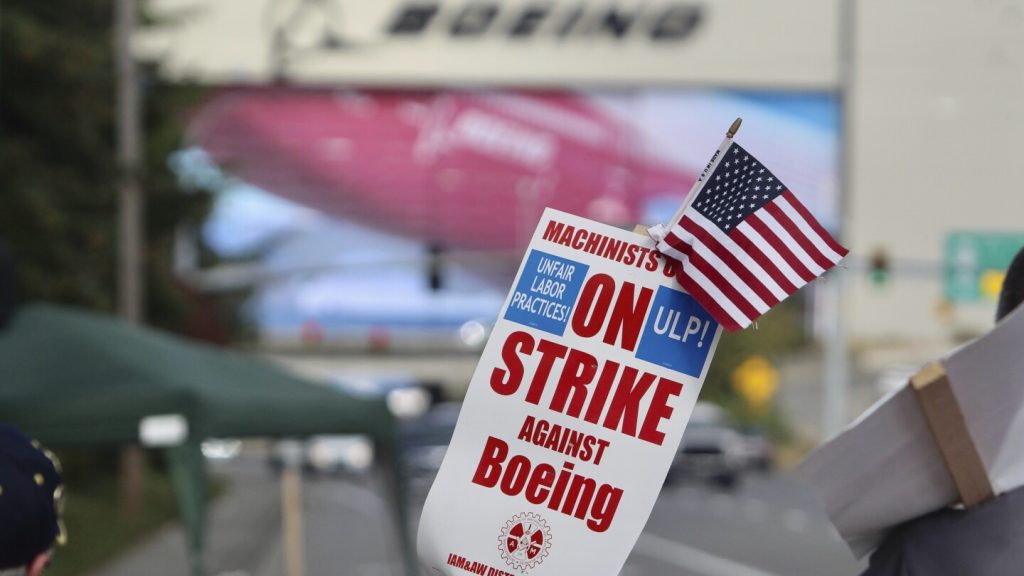A labor strike at Boeing has entered its eighth day with no signs of ending. The strike, involving 33,000 union machinists, began on September 13 after the rejection of a proposed contract that offered a pay raise of 25% over four years. Workers are demanding a 40% raise and a restoration of traditional pension benefits. Federal mediators have joined talks between Boeing and the International Association of Machinists and Aerospace Workers, but little progress has been made so far.
Boeing CEO Kelly Ortberg expressed disappointment at the lack of progress in the discussions but remains committed to reaching an agreement that recognizes the hard work of employees and ends the work stoppage. The union has reported that no further talks have been scheduled. The strike primarily affects workers in factories in the Puget Sound area of Washington state and is expected to have a significant impact on Boeing’s balance sheet as production of several aircraft models has been halted.
In response to the strike, Boeing has implemented cost-saving measures that include furloughing managers and nonunion employees. The company is also enforcing a hiring freeze, travel restrictions, and a 25% salary cut for top executives. Tens of thousands of nonunion workers will be required to take one unpaid week off every four weeks under the furlough plan. Activities related to safety, quality, and customer support will continue, along with production of the 787 Dreamliner in South Carolina.
The Society of Professional Engineering Employees in Aerospace, Boeing’s second-largest union, has rejected a company request to include its 19,000 employees in the furloughs. The union sees no compelling reason to alter its contract, which prohibits furloughs. Concerns about a potential cash crunch are prompting ratings agencies to consider downgrading Boeing’s credit rating, which could increase borrowing costs. Boeing had $58 billion in debt and $11 billion in cash as of June 30, with the company burning through $4.3 billion in the second quarter.
Boeing’s Chief Financial Officer Brian West stated that the company delivered 83 commercial planes in July and August, almost matching the total for the entire second quarter. However, this pace will be impacted if the strike continues for an extended period. The strike has forced the company to take steps to conserve cash and navigate the financial challenges posed by the work stoppage. Both the union and Boeing are focused on finding a resolution to the strike that will benefit all parties involved and allow production to resume.


